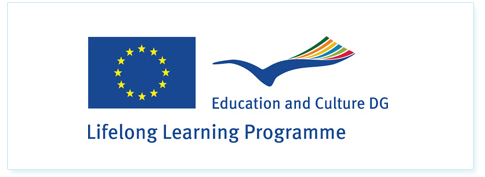ESUBM
Reader for BM 61:BM61-Reader.final
EQUNet Conference on the Future of Social Dimension in Higher Education
Final agenda: Download this file.

DRAFT AGENDA OF THE EVENT
Monday, 7th November (arrival days)
Day 1, Tuesday 8th November
9:00-10.00 Opening, welcome words
Yordanka Fandakova, Mayor of Sofia;
Prof. Sergey Ignatov, Minister of Education, Youth and Science;
Allan Päll, Chairperson of ESU;
Fabio Nascimbeni, Representative of MENON;
Petar Chaushev President of NASC;
Sergey Modev, President of UBS
10:00- 10:30 Presentation: The meaning of Social Dimension in the European Higher Education Area, Klemen Miklavic, CEPS
How did the concept Social Dimension come to be? What does Social Dimension mean in the European Higher Education Area?
10.30-11.00 The EQUNet Project, Anthony F. Camilieri, SCIENTER
EQUNET is a 3-year project aiming at increasing access to Higher Education for all marginalized and non-traditional groups based on a principle of equity. What are the main aims, purpose and achievements of the project? What messages does the report “Evolving diversity in HE” bring forth?
11:00-11:30 Coffee Break
11:30-13.00 Panel discussion: Targets and tools to strengthen focus on social dimension in education.
Chair: Per Nyborg (CEPS) Respondents: Jens Vraa-Jensen (HERSC) Lene Oftedal (EC), Andreas Bohonek (ZSI), Mary Tupan-Wenno (EAN), Allan Päll (ESU)
What are the different Social Dimension initiatives and policies at European level? Participants will have an understanding of the scope of the Social Dimension Observatory, the Right to Quality Education initiative and what the objectives of EU2020 and modernization agenda in relation to equity in HE.
13:00-14:30 Lunch
14:30-16:00 Panel session: Ethnic origin and access to Higher Education: what stands in the way and what can we do about it.
Galina Kostadinova (MRGI), Dorit Griga (University of Bern), Ethnic Minorities and Immigration WG of ESU
What is being done on European level to widen the access to education for ethnic minorities and immigrants? Galina Kostadinova from Minority Rights International will explain the definitions of ethnic minorities and immigrants. Dorit Griga will shed light on the migration and equity in Europe after which the working group on ethnic minorities and immigrants will share the results of the survey conducted to NUSes and share best practices.
16.00-16.30 Coffee break
Campaign Poster Exhibition of NUS campaigns on equality and social affairs at the coffee venue to benchmark best practices and exchange ideas on successful campaigns; Distribution of the essay, winner of EQUNet competition is announced.
16:30-18:00 What does YouTube show us?
Interactive session on stereotypes in social media and everyday life and their impact on forming attitudes. Virginija Prasmickaite, IGLYO, GECC
What are stereotypes? Is there a link between YouTube and other medias to our daily behaviour? This interactive session will be chaired by IGLYO with a different perspective on stereotypes.
19:00-20:00 Dinner (at the Conference venue)
Day 2, Wednesday 9th November
09:30-11:00 Synergies and future actions of stakeholders for widening access to HE
Parallel workshops on how stakeholders and NUSes can promote social dimension towards 2012 and beyond
What are the different perspectives and approached towards widening access to higher education shared among different stakeholders? How could NUSes be involved in this? In the workshops the possibilities of how NUSes can be involved in promoting social dimension in practice will be explored and have the opportunity to gain more insight and give feedback on the topics of the workshops.
See workshop description at the end of the agenda
11:00-11:30 Coffee Break
Ongoing Campaign Poster Exhibition on equality and social affairs at the coffee venue.
11:30-13:00 Debate Club: Social Dimension from the perspective of young leaders.
The method of the session is called ’debate club’, where participants can express their opinion on current, heated statements by moving along a line from ’agree to disagree’ and engage in debate on the topics. Aim is to show the pros and cons to the statements and gather new arguments for future work.
13:00-14:30 Lunch
14:30-16:00 Presentation of the outcomes of parallel sessions,
Conclusions of the seminar and key messages to policy makers

